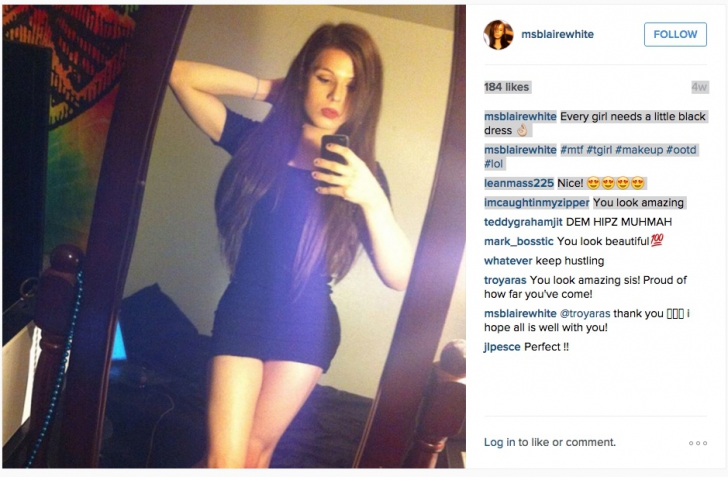In November 2015, a tiff broke out at Vancouver’s Simon Fraser University between a feminist group and a men’s rights activist (MRA) group. There’s nothing surprising about this — campus scuffles involving MRAs and feminists are practically a Canadian tradition.
In 2012, feminist protesters at the University of Toronto blockaded the door to a lecture by men’s rights activist Warren Farrell, defying police and organizers and blocking what they called hate speech. In 2013, MRA-tinged posters appeared around the University of Alberta campus mocking a feminist anti-rape campaign and accusing women of false rape claims. In 2014, student protesters at the University of Ottawa drowned out a lecture by anti-feminist men’s activist professor Janice Fiamengo with shouts and horns, before shutting down the event entirely by pulling a fire alarm.
In comparison, the war of words at Simon Fraser University (SFU) was relatively mild.
The MRA group, SFU Advocacy for Men and Boys (AMB), invited Karen Straughan, an outspoken and charismatic men’s rights internet personality, to speak about “toxic femininity.” Weeks later, the university’s Gender Studies and Women’s Studies Student Union released an anonymously written open letter criticizing the AMB for the “offensive, hostile and aggressive” event, and accusing them of “using men’s issues as a way to attack feminism.”
The AMB shot back with its own letter, calling the student union “histrionic” and “superficial,” and accusing the feminists of demanding a monopoly on the conversation.
But here’s where the story gets interesting: The AMB’s indignant response was penned by the club’s president Theryn Meyer, a transgender woman.
Meyer, a 21-year-old South African musical composition student, is exactly as politically iconoclastic as expected from a trans woman men’s rights activist. On Twitter, she follows Fox News host Megyn Kelly, conservative columnist SE Cupp, the Libertarian Republic magazine and arch-anti-feminist Paul Elam. She also follows Laverne Cox, feminist philosopher Judith Butler, and Vancouver Pride.

On her YouTube channel, she draws well-meaning but often misguided praise from her MRA fans (“You are so beautiful and intelligent I start doubting my heterosexuality,” “You’re even prettier than a real woman,” “You have the best hair”), and a respectable 3,000 subscribers.
Meyer identifies as a men’s rights activist and an “afeminist,” and says she thinks feminism has an unfair ideological chokehold on LGBT communities.
“I don’t like feminism constructing a trans identity around victimhood,” she says. “I used to be a feminist, and I was a fucking wreck. I was eating up everything that feminism fed to me: that the world was out to get me, that the world was structured to not accommodate me. And of course that’s true to some extent, but it was the constant harping about it, and the idea that you can never do anything about it as an individual. When I finally turned my back on all that stuff and I started realizing the strength I have as an individual, that’s when I started becoming strong as a trans woman.”
The last straw, she said, was during a protest for gender-neutral washrooms in 2015, when students occupied a male washroom at SFU. When Meyer suggested that only occupying the male washroom was unfair, she says, she was ignored. She says she heard another student say that bashing men was okay because men hold structural power. As someone who was once seen as a man, the statement struck her as wrong.
“I decided I was done,” she says.
Since then, Meyer has plunged into the world of men’s rights activism, even being interviewed cordially by the controversial leader of A Voice for Men, an organization decried by many feminists and the Southern Poverty Law Centre as a hotbed of misogyny and hate.
And remarkably, Meyer is not alone. Blaire White, a 22-year-old computer science major and trans woman from the tiny Sierra Nevadas town of Chico, California, is also a rising star in the men’s rights movement.
On Twitter, she discusses the effects of her estrogen treatment, her boyfriend and how feminism is a cancer. One of her YouTube videos, about her classmates in a psychology class laughing at a male abuse victim, has nearly 200,000 hits.

(Blaire White on Instagram)
Meyer and White agree their criticisms of feminism, and support for MRAs, did not develop despite being transgender but because of it. White says after living part of her life as a man and part as a woman, she believes she unequivocally receives more societal privilege as a woman than a man. She says as a woman people are kinder, care more about her feelings, and are more willing to sacrifice on her behalf.
“I’ve been able to first-hand empirically experience the way people treat you and the experiences you have, and the difference in life,” she says. “There’s an age-old conversation about where the grass is really greener. I think trans people can really answer that question.”
Meyer shares White’s view that trans women are abused and criticized not because of their apparent femininity but because they are seen as “failed men.” She thinks transphobia against trans women stems from the hatred of men who do not live up to strict social standards of maleness — in her words, misandry.
“I receive that level of transphobia when I’m perceived as a man, not when I’m perceived as a woman,” Meyer says. “So in my mind, and in any logical person’s mind, that would be misandry. A man who wants to beat me up in an alleyway, or a woman who calls security when they see you in the washroom, they see you as a man — a perverted, or broken or fucked up man, but a man nonetheless. Feminists would tell you that it’s because these perpetrators see these people as effeminate men, and therefore it’s misogyny. It’s still misandry, because they’re still perceived as men.”

Many of White and Meyer’s arguments are familiar to anyone who has read about the men’s rights movement. White has a brother in family court, and complains about family law discrimination against men. Meyer objects to feminists shutting down open dialogue, as she says happened at SFU.
In one other respect, however, Meyer and White have a gripe with feminists that could only come from two trans women. Contemporary third-wave feminists, they say, often argue that gender is a purely social phenomenon, and that male and female brains are not fundamentally different. If that’s true, these trans MRAs say, how is it that two people born and socialized as men could intrinsically know they were women? You can argue that gender is entirely socially constructed and that male and female brains are the same, or you can respect transgender people’s claim that they are intrinsically one gender, they say, but not both.
“Despite all odds, despite having the social construct of being male pushed on me all my life, I came out as a woman,” Meyer says. “Obviously it’s more than just cultural. I feel like they’ve really argued themselves into a corner. Were trans people born this way, or what?”

Of course, many, many, many trans people are perfectly happy to be called feminists. Trans feminists argue that discrimination against trans women is linked to misogyny against all women, that feminism is a good way to examine trans issues, and that there is no conflict between feminism and trans people’s self-understanding. Only a scant few old-school feminists still hold ill feelings about trans women.
White and Meyer know they are in the minority, but hope more LGBT people will join their lonely mission. Both insist they are better off now as women than they were when they were seen as men, and feel more comfortable among MRAs than among feminists.
“I don’t get male privilege now; I get female privilege,” White says. “I think we have to challenge this narrative that always puts women into a victim status and men into an oppressor status.”


 Why you can trust Xtra
Why you can trust Xtra


